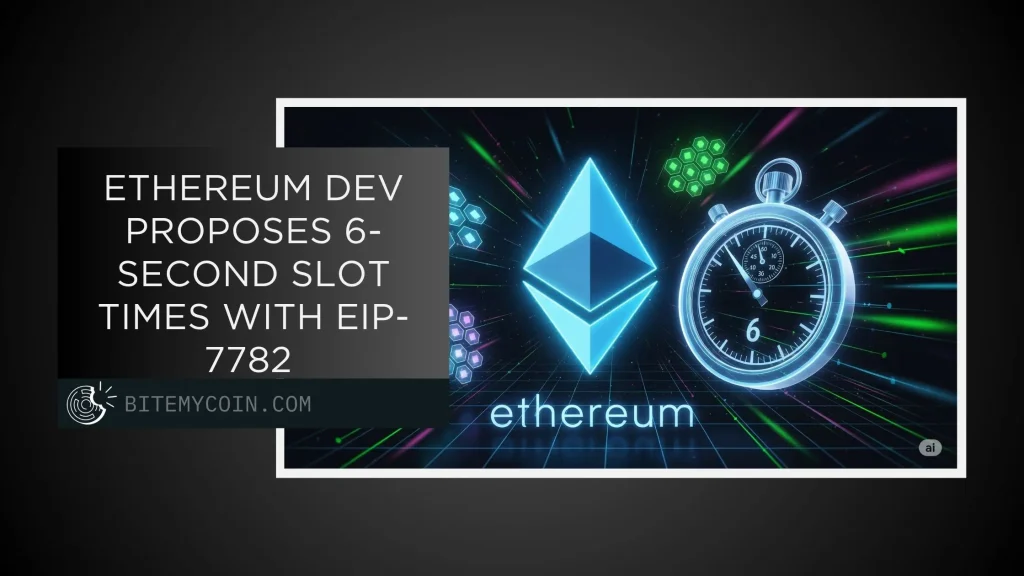Ethereum Dev Floats Halving Slot Times to 6 Secs, Doubling Blocks

Barnabe Munnot, an Ethereum developer, issued a proposal that recommends reducing the block time of the network in half from twelve seconds to six seconds, aiming to improve the user experience and enhance the transaction process.
Barnabe Monnot presented Ethereum Improvement Proposal 7782 on June 21, suggesting cutting the slot times to 6 seconds by making some adjustments in the timing of distinct blockchain operations.
EIP-7782 Proposal
The main motivation of the EIP-7782 Proposal is to halve the time it takes to build new blocks on the Ethereum network from 12 seconds to 6 seconds. As a result, it enhances the confirmation services of the network and also improves the economic value obtained by the network as a confirmation layer and settlement.
According to Barnabe Munnot, the shorter slot times help in boosting the transaction inclusion, which results in increasing the count of responsive chains and offering excellent experiences across layer-2 networks, wallets, and decentralized applications.
The proposal EIP-7782, initially developed in October 2024, is scheduled for inclusion in the Glamsterdam update, anticipated in late 2026. Further, the network is slated to undergo many healthy scalings and has reached the block with eight times the blob supply and three times the current gas limit.
The main goal of the Glamsterdam update is to make Ethereum faster and less expensive, with a wider mission of improving user experience and the performance of the network. Recently, it is in its early design stage and mainly concentrates on protocol-level efficiency developments and gas optimizations.
On Monday, the network efficiency increased by reducing the time between blocks, and it helps to process more transactions in a short period, leading to greater throughput and reducing transaction charges, mainly for layer-2 solutions, according to the team at Ethereum staking protocol Everstake.
Ethereum Improvement Proposal 7782 issued adjustments to the 3 main subslot timings:
- Block proposal time: 4 seconds to 3 seconds
- Attestation time: 4 seconds to 1.5 seconds
- Aggregation time: 4 seconds to 1.5 seconds.
According to Barnabe Munnot, the adjustments in the EIP-7782 proposal help to decrease the time required for each duty. It helps in shortening the subslots, which means less time is needed to perform each duty. This 2x reduction in slot time makes it a worthy option for Ethereum and also for the Glamsterdam update.
Shorter slot times provide various benefits for decentralized finance, like instant price updates in the decentralized exchanges. The trading sector also benefited from this shorter slot by decreasing losses because of the arbitrage traders who exploit price differences, Barnabe Munnot explained.
According to Munnot, the fees for trading would fall when the efficiency of the market increases, and there will be more liquidity in the automated market makers.
Anyhow, there could be some potential tradeoffs like influence on greater bandwidth demands, poor or slower linked validators, and difficulties of network congestion, especially during the peak usage periods. It would require extensive testing to eliminate the instability of the network and also to make sure that the smart contracts remain operational.
Crypto & Blockchain Expert
